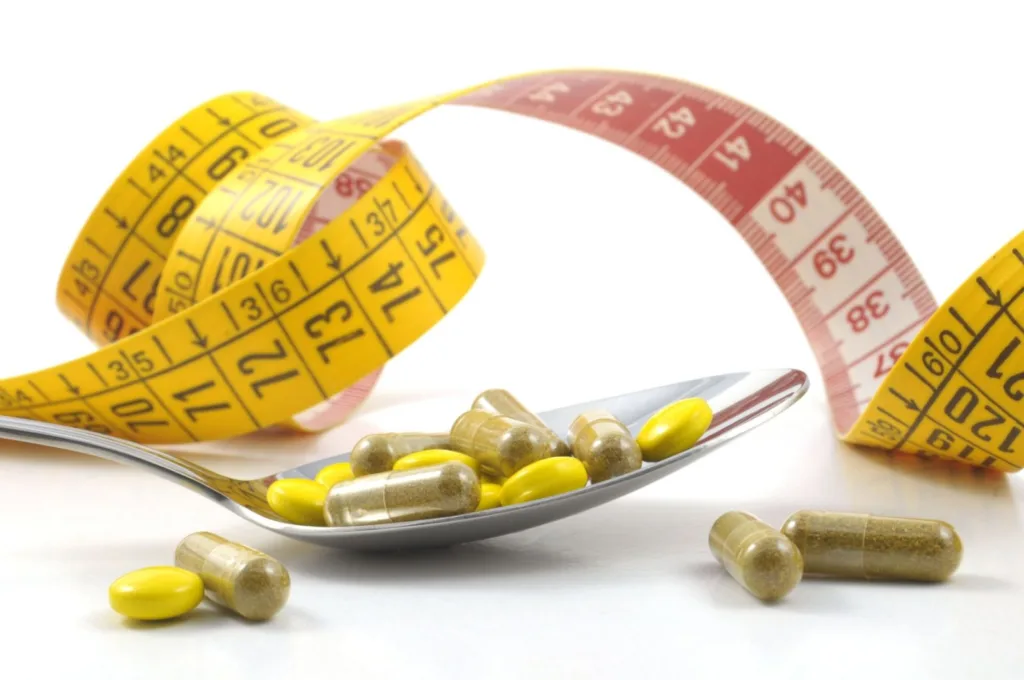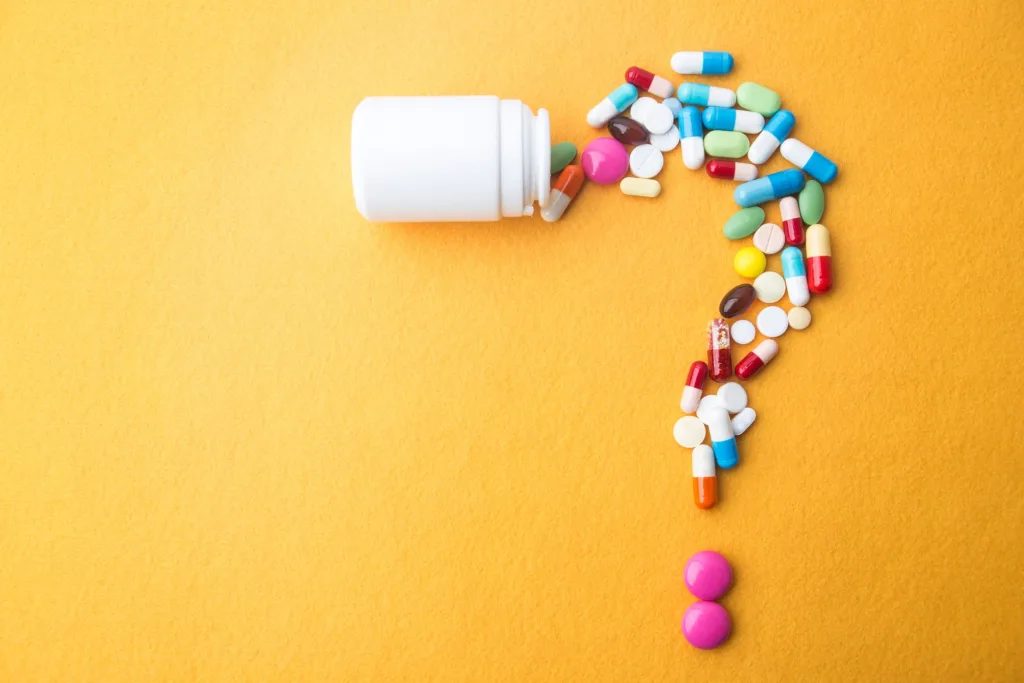Losing weight is one of the most common goals people set out to achieve, yet it can be extremely challenging to find a solution that is both safe and effective. With the weight loss industry booming, the market has become saturated with all kinds of pills, potions and programs that promise dramatic results. However, many of these fail to deliver on their claims and some can even jeopardize health in the long run.
In this post, we will explore some of the most popular over-the-counter weight loss pills available today. We evaluated the top selling weight loss supplements against 6 key aspects related to safety, scientific validity and real world effectiveness. Our goal is to provide readers with a trustworthy perspective, so you can make informed decisions about any weight loss regimen. Let’s get started!

The Diverse Landscape of Weight Loss Pills
The market for over-the-counter weight loss pills, tablets and capsules is massive. In fact, it is estimated to be worth over $30 billion globally. With new products constantly entering an already crowded arena, all claiming to be the magic bullet for weight loss, it can get overwhelming trying to cut through the noise.
In our analysis, we narrowed our focus down to six of the most popular weight loss pills among consumers, based on market share and online popularity. These included key supplements like Garcinia Cambogia, Green Coffee Bean, Raspberry Ketones, Forskolin, Conjugated Linoleic Acid (CLA) and Glucomannan. In the following sections we will evaluate the legitimacy of the claims made by these pills against crucial aspects like safety, effectiveness and scientific validity.
Methodology: Factors to Evaluate Accuracy of Claims
With the health and safety of consumers in mind, our team developed a rigorous criteria to evaluate the accuracy of claims made by the leading weight loss pills. We searched medical databases like PubMed along with reputable industry sites to gather all pertinent research. Our criteria accounted for the following six vital aspects:
1. Ingredient Transparency: Are all ingredients clearly listed with details on expected actions and safety?
2. Clinical Trial Evidence: Is there strong data from rigorously controlled human clinical trials supporting the claims?
3. Scientific Consensus: Do systematic reviews and meta-analyses in scientific literature validate effectiveness?
4. Adverse Effects: What are the documented short and long term safety risks for the pills?
5. Real User Results: What outcomes are reported by real consumers using these products?
6. Company Reputation: Are the supplements produced by companies with high ethical and quality standards?
In the following sections, we reveal our findings for each weight loss pill against these six crucial evaluation parameters around accuracy of effectiveness and safety.

Ingredient Transparency – A Key to Safety
Looking under the hood and understanding what goes inside any health product is a vital prerequisite, especially when the promise is substantial fat burning. Our in-depth ingredient analysis revealed that all six weight loss pills contained a mix of vitamins, herbs, minerals and other botanical extracts that can work in different ways.
1. Garcinia Cambogia contains hydroxycitric acid (HCA) as the primary active compound, which is extracted from a Southeast Asian fruit rind and is standardized to 60% in most pills. HCA is claimed to suppress appetite and inhibit fat production.
2. Green Coffee Bean utilizes chlorogenic acids from unroasted coffee beans as its main ingredient. It is purported to reduce glucose spikes and enhance fat metabolism in the liver, leading to weight loss.
3. Raspberry Ketones also rely primarily on a single active compound present in raspberries. The chemical called rheosmin is touted mainly for its ability to “release” stubborn fat tissue.
4. Forskolin features the terpenoid rich coleus forskohlii herb. Its advocates suggest that forskolin increases cellular cyclic AMP to stimulate more fat breakdown.
5. Conjugated Linoleic Acid (CLA) – Derived from fatty acids in dairy and meat, CLA forms the core of this pill and is believed to change enzymatic activity to promote loss of body fat.
6. Glucomannan, a soluble dietary fiber, is the key ingredient in pills like Lipozene. It is said to expand in the gut, improving satiety and reducing calorie intake.
While transparency around ingredients is reasonable for most products, the obvious limitation is a lack of clarity on clinical benefits and safety risks, which leads us to the next critical aspects.
Scientific Evidence Separating Hype from Validity
Thorough scientific substantiation is crucial when assessing product claims, especially for something as vital as safe weight loss. Beyond ingredient research, we dug deeper into clinical evidence, looking specifically for credible data from gold standard human trials on every pill. The results were eye-opening:
1. Garcinia Cambogia: Despite immense hype, most rigorous human trials show minimal to no weight loss effect versus placebo. There is some early evidence for reduced appetite but not fat burning.
2. Green Coffee Bean: High quality clinical evidence remains lacking. A few lower quality trials show minor impact compared to placebo. Overall evidence is too weak to make solid conclusions.
3. Raspberry Ketones: Virtually no evidence from human clinical trials demonstrating effectiveness. The hype stems primarily from animal studies utilizing massive unrealistic doses.
4. Forskolin: We located two tiny human trials showing marginal weight loss and body composition change. However more extensive data still needed to warrant recommendation.
5. Conjugated Linoleic Acid (CLA): Considerable research but evidence on weight loss in humans is underwhelming. Meta-analyses reveal less than 1 lb average benefit over placebo across numerous studies.
6. Glucomannan: Showed most promise among the six pills with decent effectiveness from multiple clinical trials. However weight loss effects are still relatively small, in the 2–5 lb region.
In summary, while ingredients may appear legitimate for these popular pills, the scientific evidence backing real world weight loss effects in humans is sorely lacking or unconvincing.

Paying Attention to Adverse Effects
Beyond just reviewing the data to validate fat burning and weight loss, we analyzed the existing clinical evidence and post-market surveillance to reveal meaningful safety risks associated with each pill.
1. Garcinia Cambogia: Generally well tolerated by most healthy adults over 12 weeks. Abdominal cramps, diarrhea, nausea and headaches reported in some cases.
2. Green Coffee Bean: Evidence on safety still considered limited. In some cases associated with elevated heart rate and high blood pressure. Contraindicated in pregnancy and for those with cardiovascular conditions.
3. Raspberry Ketones: Being chemically synthesized in labs, quality control issues resulted in multiple recalls. Also linked to jitters, headaches and nausea in some users.
4. Forskolin: Documented side effects include flushing, low blood pressure, coughing, restlessness and increased heart rate in vulnerable groups.
5. Conjugated Linoleic Acid (CLA): Over long term use, adverse events include fatty liver, insulin resistance and gastrointestinal side effects like constipation.
6. Glucomannan: Abdominal discomfort, gas, diarrhea and constipation commonly reported, especially when instructions around water intake are not followed. Also has dangerous interactions with some medicines.
While most short term side effects of these pills fell in the tolerable range, we were concerned by emerging data on potential organ level dysfunctions and cardiovascular issues associated with several ingredients.
User Reviews – Important but Incomplete
With limitations around clinical evidence for some pills, we also surveyed candid user reviews posted on third party shopping websites to gauge real world outcomes. However, we would caution readers to be very discerning when interpreting user commentary which tends to be subjective. Our key takeaways:
1. Garcinia Cambogia: Received average to good ratings among majority of reviewers. Some mentioned mild weight loss while many observed no noticeable effects even after diligent usage.
2. Green Coffee Bean: Extremely variable outcomes reported. Positive reviews cited high energy, reduced sugar cravings and modest weight loss. Negative comments called it an ineffective waste of money.
3. Raspberry Ketones: Numerous complaints about ineffectiveness for weight loss, while a few lauded appetite suppression and increased energy. Safety concerns and jitters reported as well.
4. Forskolin: Continued to be divisive among users. Some praised its mental clarity and fat reduction effects, while others felt it did nothing beyond apparent placebo effects.
5. Conjugated Linoleic Acid (CLA): Another polarizing pill with almost equal positive and negative commentary. Apart from limited weight loss, GI side effects frequently highlighted.
6. Glucomannan: Received mainly favorable reviews for improvements satiety and weight loss, when coupled with lifestyle changes. Safety issues highlighted around choking hazards and blockages.
Inspecting candid user reviews revealed highly variable experiences, aligning well with the earlier evidence questioning major weight loss efficacy for a majority of these pills. However to make definitive conclusions, we have to account for one final critical parameter around the reputation of the manufacturers as well.

Importance of Company Reputation and Ethics
Considering the nutritional supplement industry remains largely unregulated, company trustworthiness holds special importance for consumers. We found highly alarming facts around safety, purity and ethical issues associated with certain brands producing the most popular pills. For instance, brands selling Garcinia Cambogia and Green Coffee Bean faced FDA warnings for making false claims and even fines for utilizing risky additives.
Likewise, several raspberry ketone supplements got flagged for manipulated user reviews as well as alarming manufacturing methods. Similar issues around insufficient quality control and controversies plagued forskolin and CLA pills produced by disreputable manufacturers lured by the massive demand.
Key Takeaways – Safety and Evidence First
In closing, while some preliminary evidence holds promise for select ingredients like Glucomannan fiber, a majority of popular over-the-counter weight loss pills lack adequate clinical proof and come saddled with safety concerns. As consumers navigate the crowded weight loss niche in search of life changing solutions, we hope the insights from our unbiased analysis better inform your decisions.
When promises sound too good to be true, it is wise to look deeper before trying any radical new regimen. Your best bet is to pursue sustainable lifestyle changes leveraging nutrition, movement and expert support. But if you still consider supplementation, be sure to vet all aspects thoroughly, consult professionals when needed and select products only from trusted manufacturers placing ethics before profits.
We continue publishing more myth busting insights and evidence based reviews to cut through the noise in the consumer health realm. So be sure subscribe to our newsletter for helpful updates. Onwards to safe and sound wellness!
Thank you for reading this post, don't forget to subscribe to our free newsletter
!